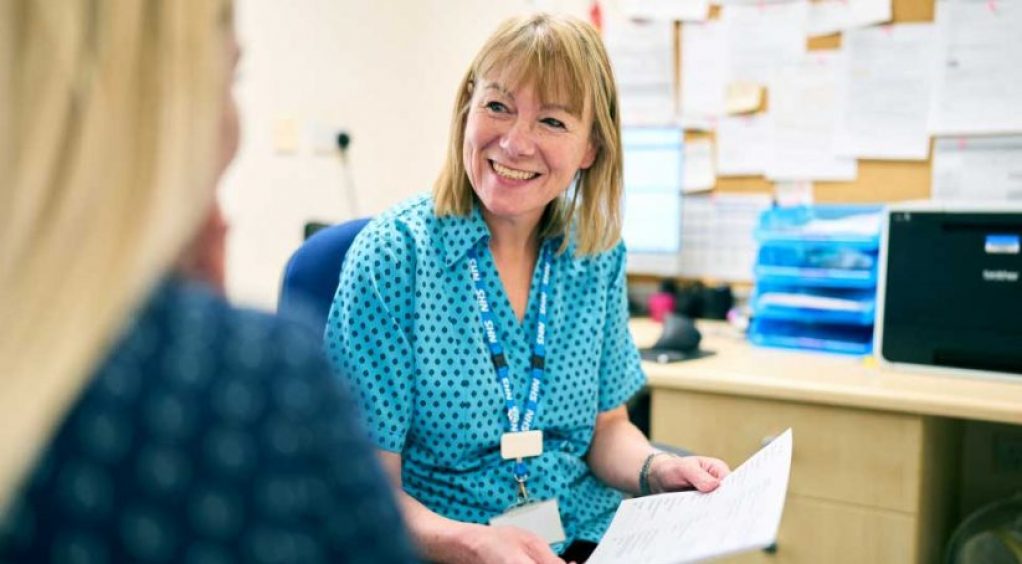Community pharmacy consultation service helps patients to be seen quickly
A service that enables community pharmacists to see patients quickly if they have minor conditions has been highlighted as one successful example of improving access to primary care.
The Community Pharmacy Consultation Service has been operating in Derbyshire for over a year.
It has been particularly embraced by the Lister House GP practice, which has 46,500 registered patients across four sites in Derby.
Their call centre advisers are trained to offer people who call to request an appointment with a GP the option of seeing their local pharmacist instead – within 24 hours of the call.
The Community Pharmacy Consultation Service is one example of the type of innovation that has been proposed by NHS England and the government in their joint “Delivery Plan for Recovering Access to Primary Care”, published on Tuesday.
A total of 1,319 patients who called Lister House’s Pear Tree and Chellaston sites were referred to a pharmacist between April 2022 and March 2023, with the numbers increasing over the course of the year.
Further evaluation for the whole of Derbyshire showed that, of the patients referred to a pharmacist:
- 20% were given advice and provided with an over the counter product
- 11% were given advice and referred to a specially trained pharmacist who is able to supply treatment and advice for specific conditions
- 10% were given advice and referred for more urgent treatment, for example at a hospital
- 10% were given advice and signposted to another service
- 38% were given advice only
Ed Clark, manager of the PCCO primary care network, which makes up the four sites run by Lister House, said: “We know that patients have difficulty in getting an appointment with their GP but through this scheme they can often be helped on the same day by a pharmacist.
“It has helped a lot at our practice, as the call centre staff have testified.
“By providing an alternative pathway to care, it relieves some of the pressure on our GPs, so they can spend their time seeing more complex cases.
“Once we get the service joined up and have a clear view of what each pharmacy can provide, alongside what times these services are available, capacity and appropriate treatment will start to move closer towards the demand needs we currently face.”
The call centre advisers assess whether a patient has one of 13 common conditions or illnesses and their symptoms before referring on to the pharmacist.
The conditions include bites, colds, earache, bowel problems, headache, blisters and swellings.
Some parts of Derby and Derbyshire have embraced this innovative scheme, but other areas are below the average uptake, compared to the Midlands area.
The local NHS is now planning to work with GP practices and pharmacists to examine and implement improvements to access.
Steve Hulme, Director of Medicines Management, Clinical Policies and Pharmacy, for NHS Derby and Derbyshire Integrated Care Board, said: “Schemes like the Community Pharmacy Consultation Service are good for patients, for GPs and for pharmacists.
“It means patients with relatively minor conditions can be seen and supported quickly, instead of having to wait longer for a GP appointment.
“It means GPs can spend their time helping people with more complex conditions and it helps to build a strong relationship between pharmacists and their community.”
Mr Hulme added: “We will look in detail at the latest announcements from NHS England and the government to see how they can be implemented in Derby and Derbyshire.
“However, we know that we have to make changes to the way local people access GP and pharmacy services and that we need to embrace innovative and successful schemes locally and nationally.”
Dr Tania Cork, a community pharmacist and Chief Operating Officer for Derbyshire Local Pharmaceutical Committee, added: “Community pharmacists are trusted experts who help to maintain the health and wellbeing of millions of people. Pharmacists want to do that more.
“It is a real positive for pharmacists to be able to pick up cases from GPs within 24 hours. This is an example of innovation that helps to ensure patients can be seen quickly and to receive appropriate advice and care.”

